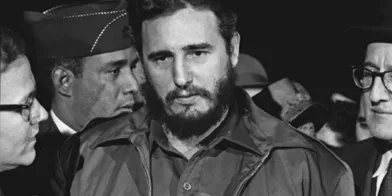In the annals of history, few events stand as stark reminders of geopolitical manoeuvring and failed covert operations quite like the Bay of Pigs invasion in 1961. At the centre of this dramatic episode was Fidel Castro, the charismatic leader of the Cuban Revolution, whose defiance against U.S. influence would define his legacy.
Castro had risen to power in Cuba in 1959, overthrowing the Batista regime and promising a new era of independence and socialism. However, his revolutionary zeal clashed with the interests of the United States, which viewed Cuba as a strategic ally and feared the spread of communism in the Western Hemisphere.
In April 1961, a brigade of CIA-trained Cuban exiles, supported by the U.S. government, launched a botched invasion of Cuba’s southern coast, known as the Bay of Pigs. The goal was to overthrow Castro’s government and install a pro-American regime. However, the operation quickly unravelled due to poor planning, lack of support from the Cuban population, and Castro’s shrewd tactics.
Castro, sensing the imminent threat to his revolution, rallied his people with fiery speeches and called for national unity against the invaders. The invasion became a symbol of Cuban resistance against American imperialism, and Castro emerged as a hero in the eyes of many around the world.
One particular anecdote from the Bay of Pigs invasion has become legendary in Cuban folklore – the story of Fidel Castro and the pig. As the battle raged on, Castro reportedly visited the front lines to boost morale and inspire his troops. Upon encountering a pig wandering the battlefield, he famously declared, “This pig must have been sent by Kennedy!” The remark, infused with both humour and defiance, encapsulated Castro’s disdain for U.S. intervention in Cuban affairs.
The Bay of Pigs invasion was a humiliating defeat for the United States and a triumph for Castro, solidifying his grip on power and strengthening Cuba’s resolve to pursue its path independent of American influence. It marked a turning point in the Cold War, illustrating the limits of U.S. hegemony and the resilience of revolutionary movements in the face of external aggression.
Despite facing decades of economic hardship and international isolation, Castro’s Cuba remained steadfast in its commitment to socialism and anti-imperialism. The legacy of the Bay of Pigs endures as a symbol of Cuba’s defiance against foreign intervention and a testament to the enduring legacy of Fidel Castro, the revolutionary leader who stood firm against the tide of history.
newshub


Recent Comments